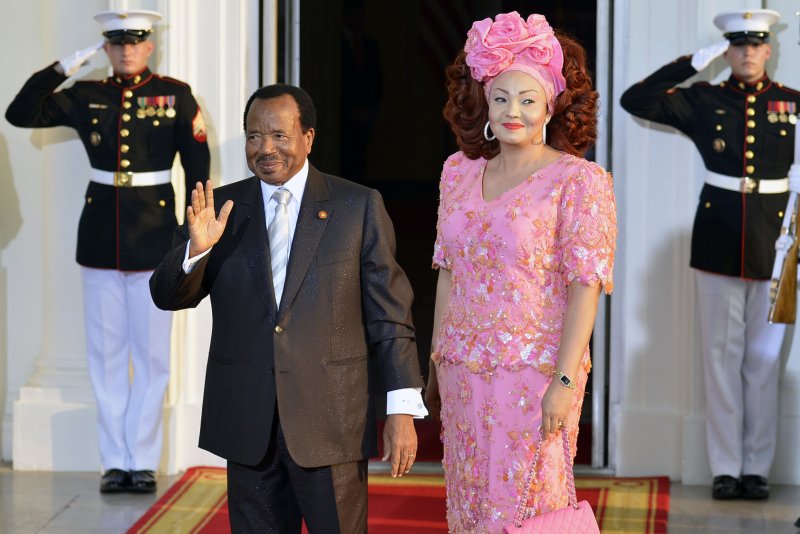The United Nations has welcomed the decision by Cameroonian President Paul Biya to release Anglophone leaders accused of terror-related offenses. File Photo by Mike Theiler/UPI |
License Photo
Aug. 31 (UPI) -- U.N. Secretary General António Guterres on Thursday applauded Cameroon's decision to drop terror-related charges against English-speaking leaders amid tensions in the French-majority African country.
Guterres' spokesman, Stéphane Dujarric, said the U.N. leader was pleased to hear of the release of the leaders, who were arrested in late 2016 on accusations they incited violence during protests in Cameroon's English-speaking North West and South West regions.
Cameroon's charges also included complicity in hostility against the homeland, secession and campaigning for federalism. The men were arrested after the leaders called for protests and a strike to promote the rights of Cameroon's Anglophones.
The international community criticized the Cameroonian government response to the protests as harsh. Security forces arrested dozens of protesters and the North West and South West regions were cut off from internet access for months.
Cameroon's President Paul Biya announced he would release the Anglophone leaders -- lawyer Felix Agbor Nkongho, teacher Neba Fontem Aforteka'a and Paul Ayah Abine -- on Wednesday.
"The Secretary General hopes that this positive step will lead to a further lowering of tensions and strengthened political dialogue," Dujarric said in a statement. "The Secretary General encourages the Cameroonian authorities to pursue their efforts to address the grievances of the Anglophone community and promote measures of national reconciliation in order to find a durable solution to the crisis."
The charges against the leaders represent a divide between Cameroon's English-speaking and French-speaking communities -- tensions dating back to post-colonial settlement. Cameroon was colonized by Germany and then separated into British and French regions after World War One.
Cameroon this week banned people from watching the popular SCBC English-speaking channel, which is broadcast from South Africa, alleging it represents and interest for the country's English-speaking population. Cameroon's Ministry of Communication accused the channel of broadcasting seditious and hateful propaganda.















